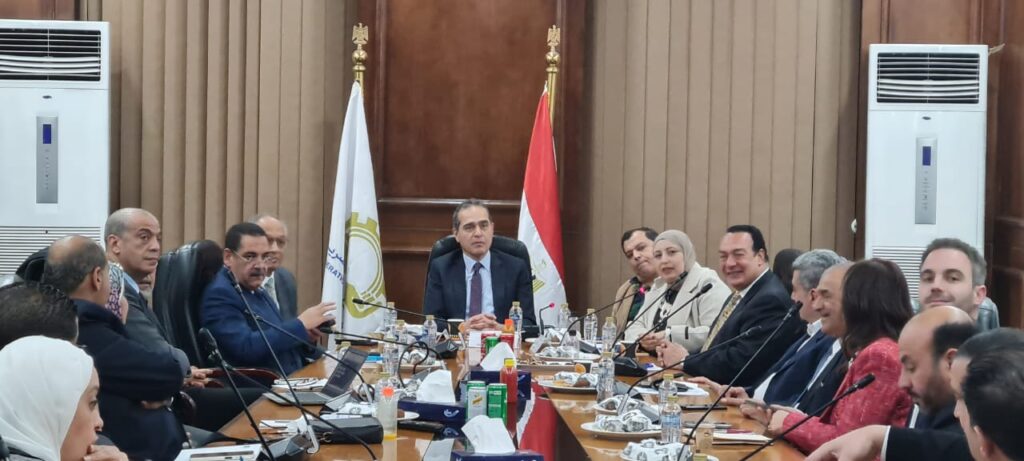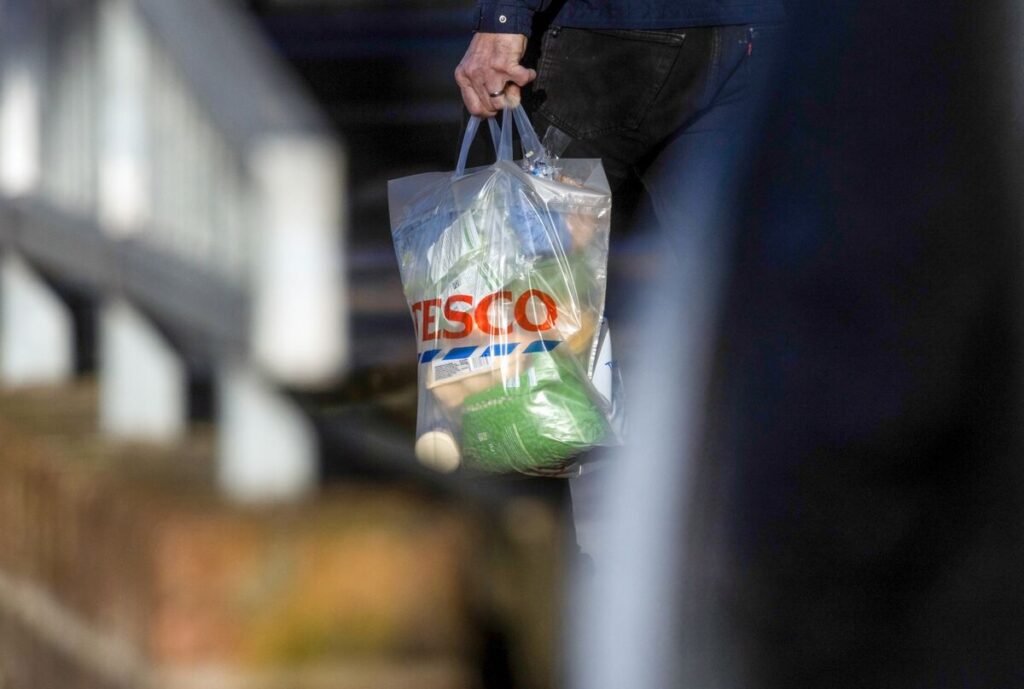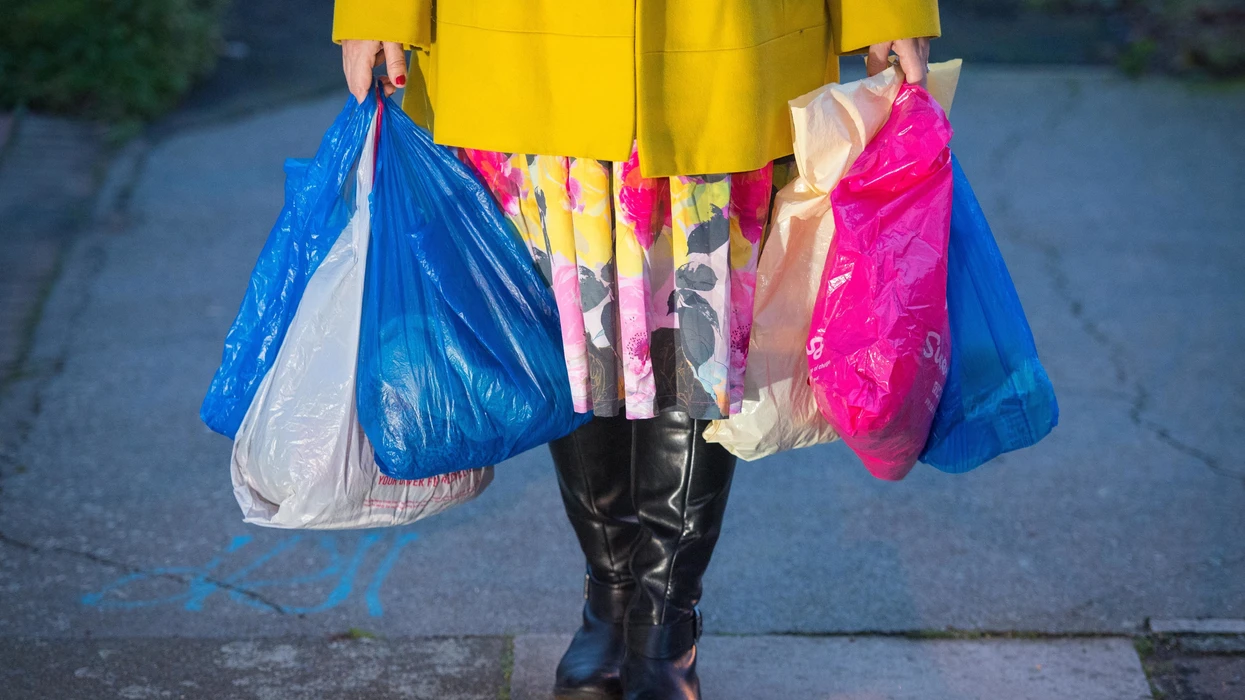Food & Climate
Plastic producers expressed their concerns about a promotion campaign that the government intends to launch next month called “Badalha”, which aims to eliminate single-use plastic in Egypt and replace them with reusable ones in stores, especially food products. Some of them suggested amending the title to “Collect it”.
This came during a joint meeting between the Plastics and Rubber Industry Division, the United Nations Industrial Development Organization (UNIDO), and the Ministry of Environment, held yesterday, Wednesday, January 22, 2025, in the Egyptian capital (Cairo) with the aim of reviewing and evaluating the content of the awareness campaign “Badalha” scheduled to be launched next February, with the aim of highlighting the negative effects of using single-use plastic in Egypt, according to a statement received by the “Food & Climate” platform.
The head of the division, Khaled Abu Al-Makarem, said that the Federation of Industries has about 1,680 registered plastic factories, in addition to a number of other unregistered factories, which the Federation seeks to integrate into the formal economy.
He added that the volume of plastic production in Egypt currently amounts to about 14.5 billion dollars, of which 25-30% is the product of the plastic bag industry. It also employs about 500,000 workers directly, “which necessitates taking the interests of these manufacturers into consideration.”
Single-use plastic in Egypt
Abu Al-Makarem called for the need to discuss the potential risks that may result from this campaign if it does not accurately and balancedly reflect the facts related to this industry, and that it may lead to sending negative messages to the public; affecting the reputation of plastic products, which may negatively affect demand, the future of manufacturing companies, and their impact on the national economy.
He also called for preparing a working paper in cooperation between the Ministry of Environment and UNIDO, aiming to prepare an action plan that guarantees the support of the “Badalha” campaign for industry and investments in it, and that the study be supported by numbers, incentives and benefits that can be given to industry to improve the collection and recycling system, otherwise it would be an obstacle to its continuity or a reason for weakening its competitiveness in the local or foreign market.
He pointed out that this plan, based on a study, will be supported by the division, and its members will be directed on how to deal with the initiatives it will put forward in this regard.
The consultant for plastics and polymers, and the former director of the Plastics Technology Center, Dr. Ahmed Abdelkader, had previously stated to the “Ghada and Climate” platform that the plastics industry is one of the most important sectors in Egypt, but the environmental problems resulting from plastic are limited to a number of products such as packaging materials; most notably the single-use light plastic shopping bag that is distributed for free when purchasing goods. This bag is made of traditional plastic that does not decompose over time and causes environmental pollution due to the difficulty of collecting and recycling.

He added that the use of biodegradable plastic technology that turns into fertilizers is one of the most important solutions to address the problem of plastic pollution, and many countries around the world are turning to it. The use of reusable bags is also one of the solutions to reduce light plastic bag waste.
The National Coordinator of the UNIDO Project and the Plastic Value Chain in Egypt, Dr. Iman Abdel Mohsen, announced that UNIDO is funding a campaign that will start next month and will last for 3 months, aiming to replace single-use plastic in Egypt with multi-use plastic bags, while stopping the free distribution of bags and providing them for a fee to consumers, to reduce the consumption of plastic bags.
The representative of the Ministry of Environment, Yosra Abdel Aziz, said that the idea of the campaign is more comprehensive than modifying one product with another, as it aims to reach a sustainable product by modifying ideas and beliefs until achieving the main goal, which is to modify the behavior of individual consumers to choose something different that contributes to reducing plastic pollution by “reducing it and choosing its alternative.”
Treating the problem of plastic waste
The Chairman of the Board of Directors of Sidpec (Sidi Kerir Petrochemicals), Mohamed Ibrahim, demanded that the “Badalha” campaign, which aims to get rid of single-use plastic in Egypt, take into account the interests of manufacturers, and suggested modifying the slogan to “Collect it”, justifying this by saying that the problem lies in collecting plastic.
He called for a clear and specific plan that includes raising awareness of how to return empty plastic bags and collect them properly from homes in order to avoid the effects of using single-use plastic.
The Managing Director of Orientals for Petrochemicals, Mohamed Abdel Aziz, explained that the current difficult economic conditions stand in the way of convincing consumers of the campaign, and the best alternative is to establish an advanced system for collecting, sorting and recycling plastic bags, “and this will not be achieved without a package of incentives and soft loans for recycling, as plastic bags constitute 10-14% of plastic waste.
Division member Hamed Moussa wondered why industry leaders were not included in the campaign discussion before its launch. He called for amending the campaign slogan from “Badalha” to “Adlha”, so that it addresses manufacturers and supports them financially to amend the specifications and production method in order to preserve the environment.
He also called for postponing the campaign and reviewing it with the Plastics Division and the Export Council for Chemical Industries and Fertilizers with the aim of motivating the industry to change the production method in line with the required specifications.

Division member Hassan Omar, a plastics manufacturer, also believes that the first step should be to guide and educate consumers on how to dispose of plastic waste, including plastic bags, which facilitates the recycling process. He said that a country like Britain This awareness campaign started 20 years ago, and did not enter into force until last year.
The Executive Director of the Export Council for Chemical Industries and Fertilizers, Mohamed Maged, suggested changing the direction of the campaign from “Replace it” to “Collect it”, with the aim of organizing the collection system and creating a recycling culture among consumers.

